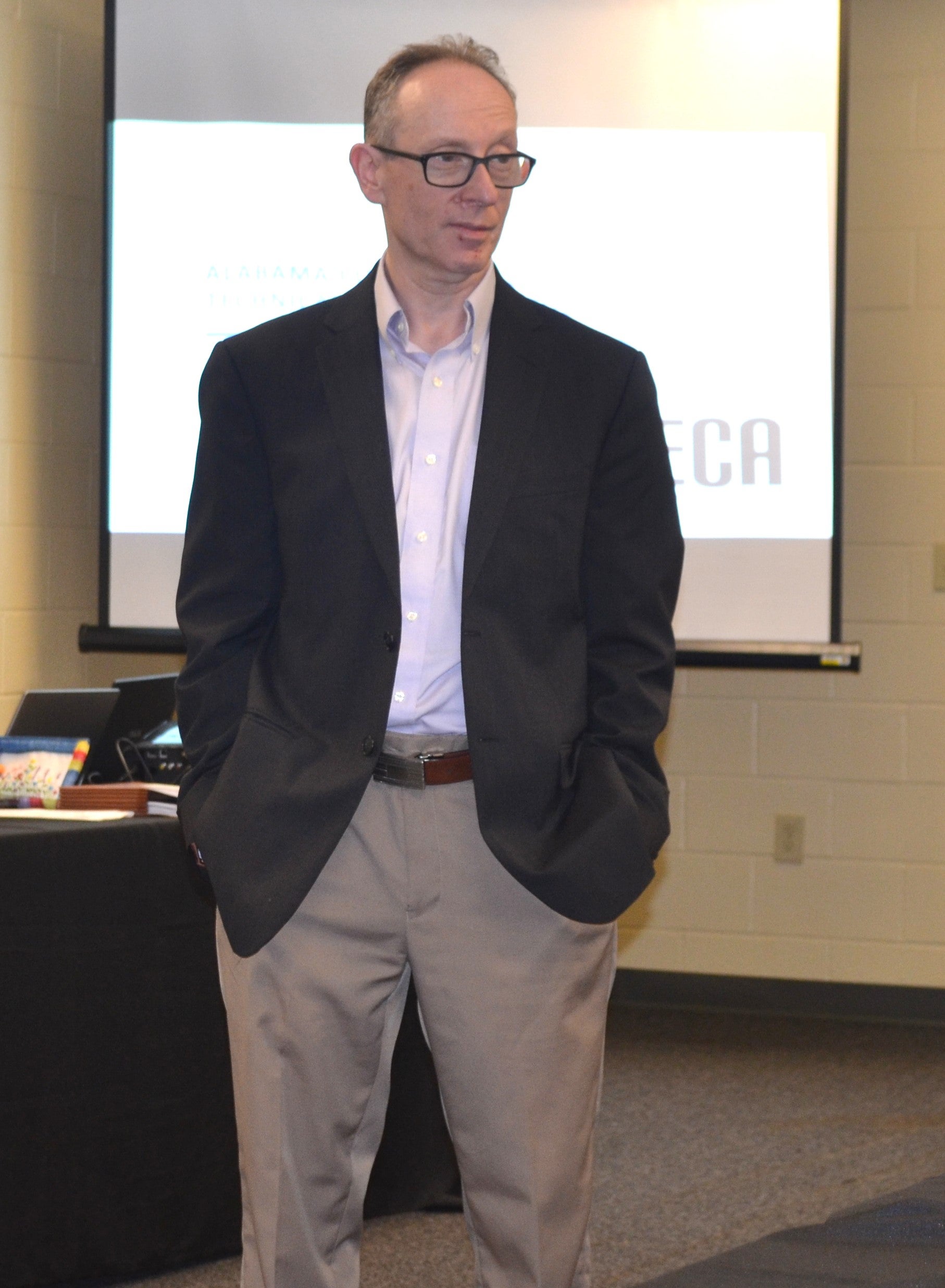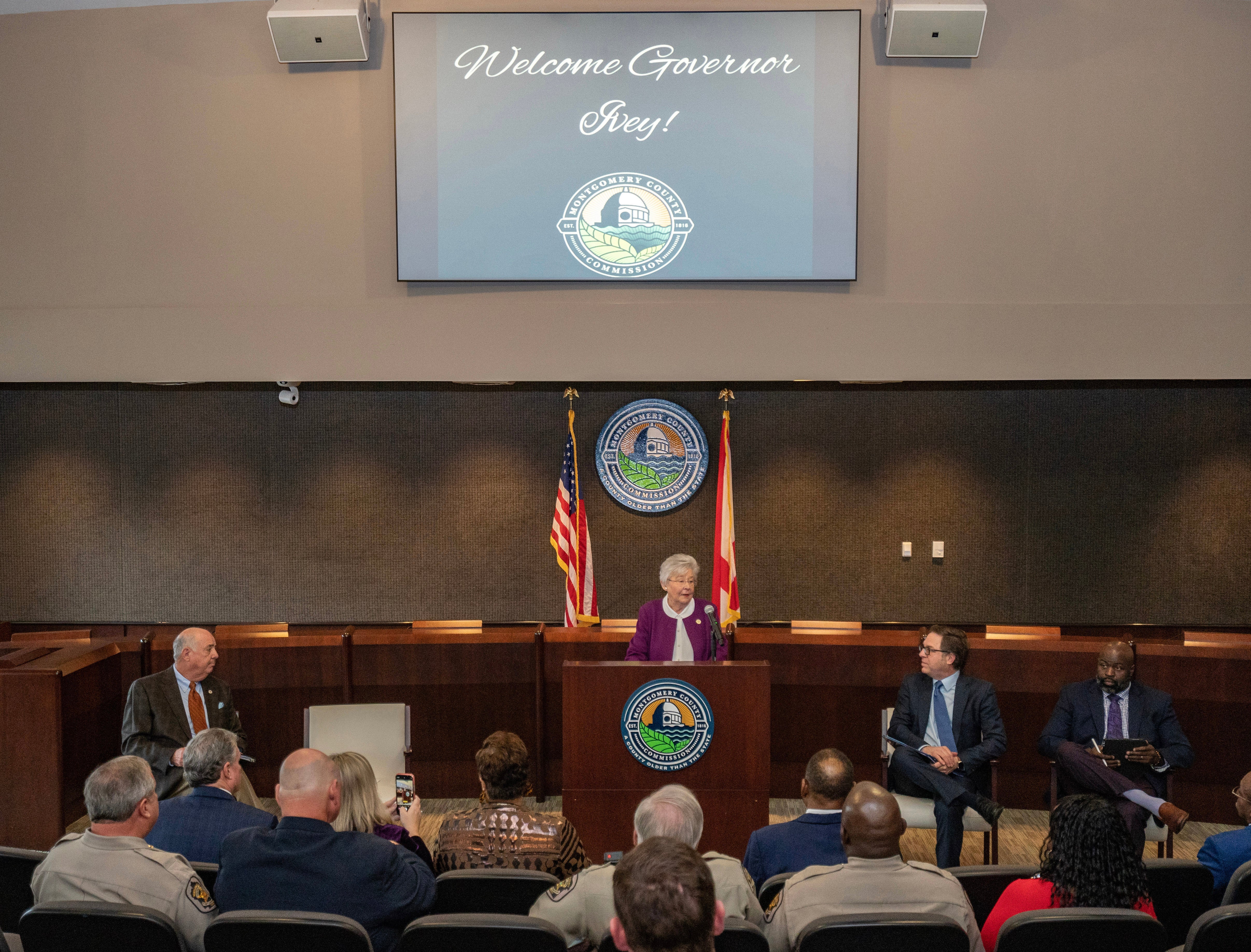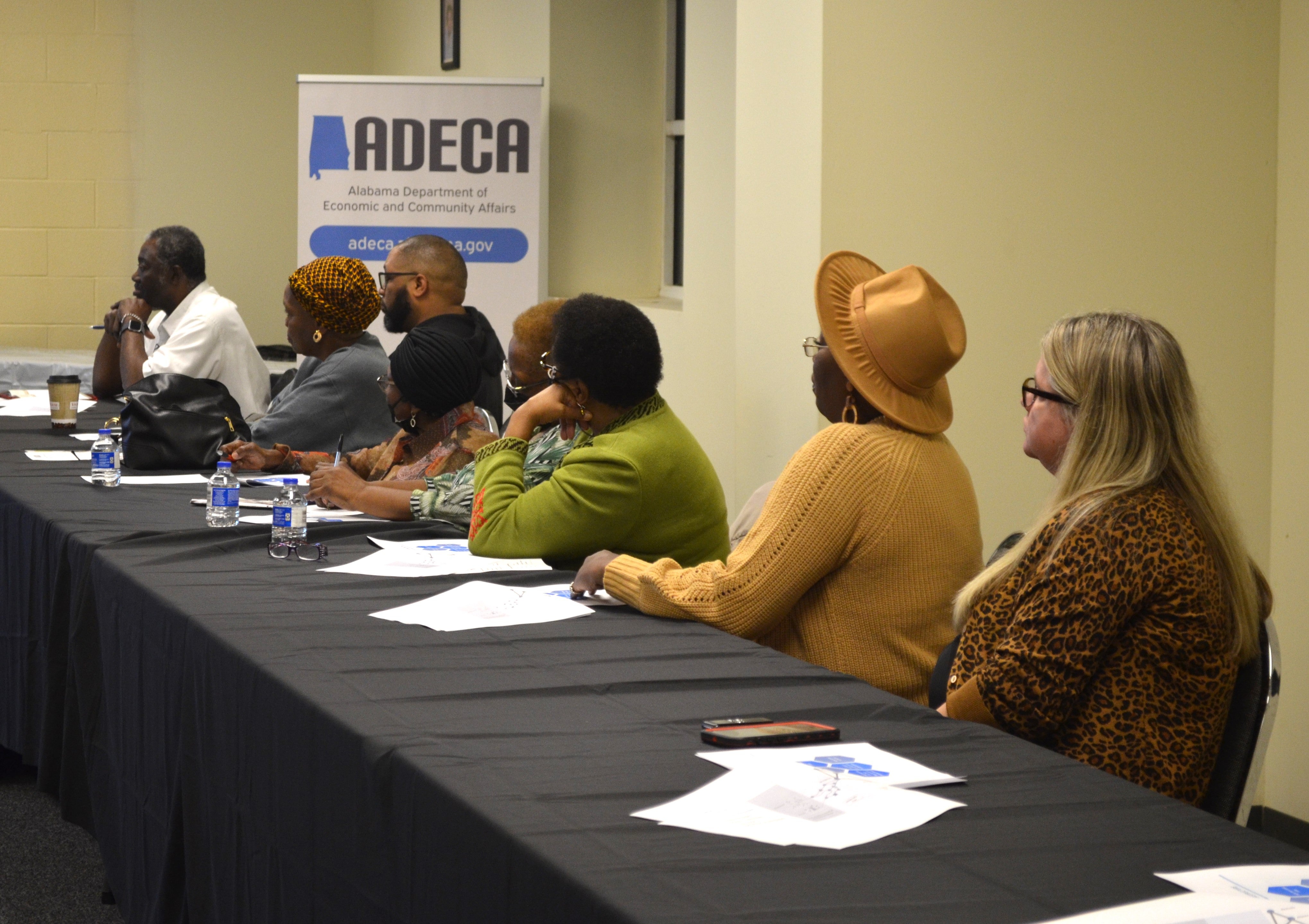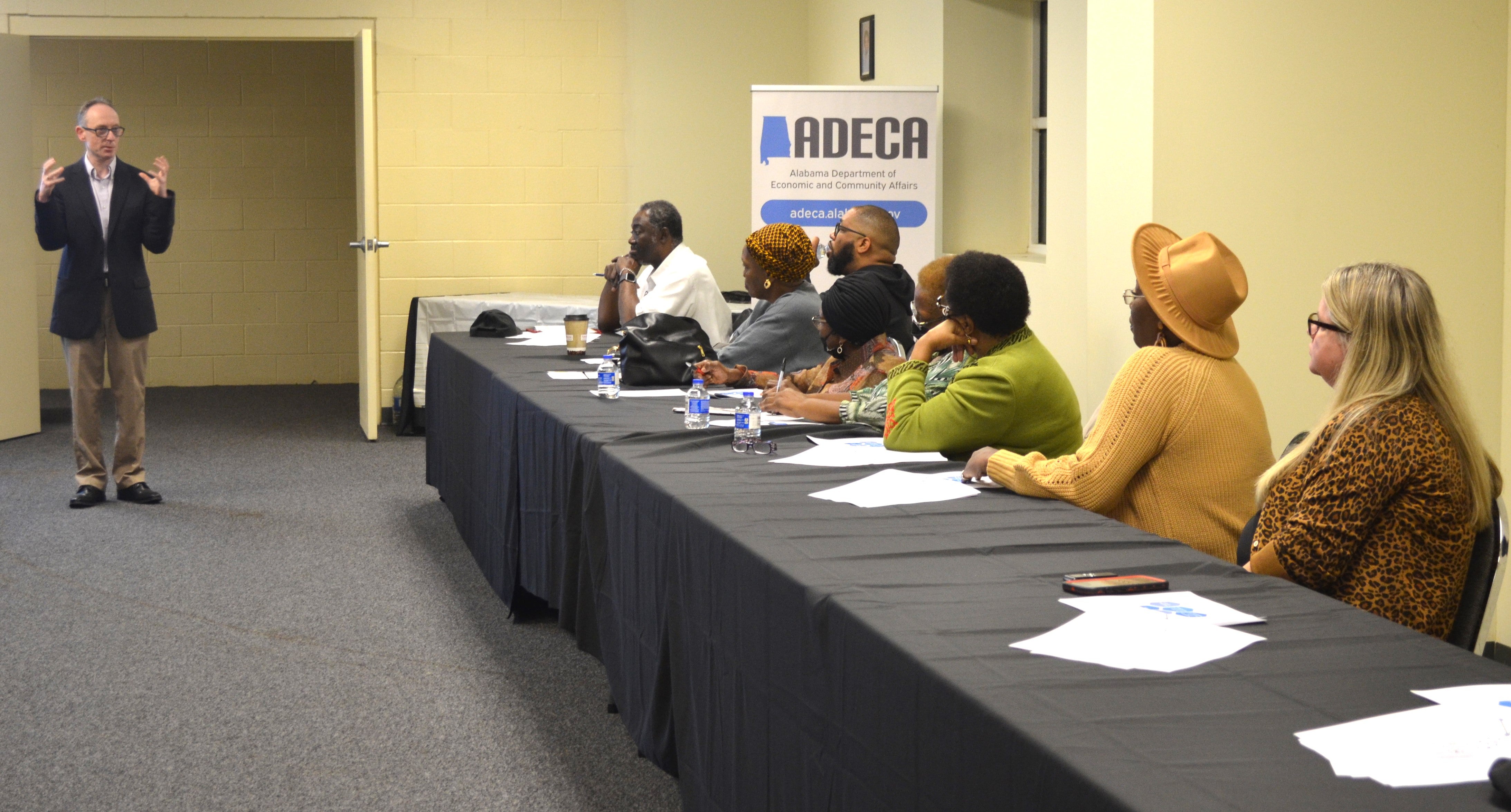ADECA program meeting assists Lowndes County stakeholders with broadband
Published 6:19 pm Wednesday, December 21, 2022
|
Getting your Trinity Audio player ready...
|
Lowndes County stakeholders met Dec. 12 in a day-long event which promoted conversations between government officials, internet service providers, citizens, and community organizations around the challenges and opportunities of bringing broadband to every household in “the 45.”
The meetings, hosted by the Town of White Hall in the Jackson Steele Community Center, were the second in a series of 67 county meetings Alabama Governor Kay Ivey kicked off Dec. 12 in an effort to bring statewide broadband service to even the most rural Alabama areas through the Alabama Department of Economic and Community Affairs administered Alabama Community Broadband Technical Assistance Program (TAP).
“The lack of broadband has been an issue for quite some time,” said White Hall Mayor Delmartre Bethel. “So just to start to have the conversation to even think about addressing some of those issues like we did today is very important.”
Throughout the day, mayors, commissioners, and community anchors discussed the gaps in Internet with ADECA representatives, outlining areas of the county where service is spotty and unstable when available at all.
Service providers like Hayneville Telephone Company were on hand to describe how they will use Rural Utilities Services ReConnect Program grant funding to lay fiber around the county, bringing broadband to several currently unserved areas.
During the public-centered meeting, residents described the challenges they face with internet services, like unreliable signals and the high cost of service.
“Broadband is overly needed in Lowndes County,” said White Hall resident Willie McReynolds. “The only type of internet service comes by satellite or HughesNet, stuff like that. It’s terrible. Broadband is needed in this area. My only concern is, can you start tomorrow?”
Charles Mayes, a lifelong Lowndes County native has stable internet service but came out to hear news about when everyone else would receive reliable service.
“I’m in pretty good shape myself,” Mayes said. “My concern is getting everyone else up to speed, technical support, and then teaching those who don’t know how to operate the Internet.”
TAP assists local governments and other stakeholders seeking to expand broadband infrastructure and services so communities can prepare for broadband deployment and digital opportunities. Funding for the program comes through U.S. Department of Commerce Economic Development Administration and National Telecommunications and Information Administration grants.
“ADECA’s goal with this program is to extend assistance with broadband mapping and planning to the county level,” ADECA Director Kenneth Boswell said. “This will help counties and communities develop plans and data to help take advantage of the many future opportunities for grant funding to help internet service providers expand broadband access to unserved areas.”
Coming out of the meetings, Bethel said he felt excited knowing more about current needs and future services.
“I’m so excited because we now have options,” Bethel said. “At first the concern was more in terms of funding. But now I know we already have a source in place. So, it’s just a matter of now figuring out how we can sit down and have this same [public] discussion [with service providers.]
Lowndes County Commissioner Robert Harris said receiving broadband will take Lowndes County to the next level, to a place needed for the county’s growth.
“It brings us to the next level, to the place we need to compete economically and educationally,” Harris said. “It all plays a part in Lowndes County growing to the highest [goal] we can.”









